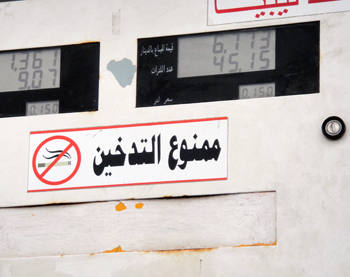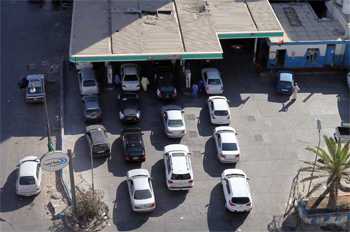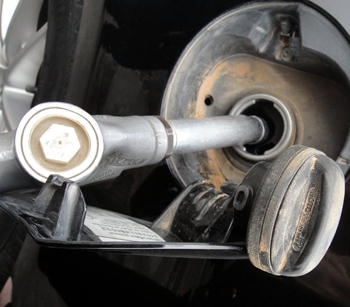Libya and Oil: Oil Sector in Libya
Libya Sector Analysis
Libya and Oil: 2013 Analysis
The one constant for Libya for the past half century has been oil. However now, for the first time, oil companies are operating differently than in pre-2011 Libya.

Libya and Oil: 2013 Analysis
Libya and Oil: The one constant
By TK Maloy
TRIPOLI – The one constant for Libya for the past half century has been oil – under King Idris I, the country would probably have taken its place in the world as a moderate, oil–rich emirate, but instead the country got Col. Gaddafi, and over 40 years of reckless, ideology-driven, mercurial leadership.
With the overthrow and death of Gaddafi during the 2011 rebellion, Libya has entered into a new era of evolving democracy and a growing private sector, helped economically by its continued large scale resources in natural gas and oil.
During the rebellion, energy production and export essentially ceases. Once over, and with the establishment of National Transition Council government, the restoration of hydrocarbon production underpinned rocketing growth of 104.5 percent in 2012.
There is much work to be done in restructuring Libya’s energy sector, including forging new partnerships, increasing the production of natural gas, and investing in improved infrastructure.
Currently hydrocarbons account for more than 70 percent of GDP, over 95 percent of exports, and approximately 90 percent of government revenues. A largely desert country, Libya’s chief economic driver has been the energy sector since the 1950s.
Dirk Vandewalle, in his “History of Modern Libya” notes that though recent reforms call for economic diversification, the cash-cow of the hydrocarbon sector will provide the necessary revenues to kick start any such economic changes.
Libya has the largest reserves in Africa, and Vandewalle observed in his history that by 2003, “only one quarter of the country’s territory had been seriously explored for oil and, except for one patch along Libya’s western coastal area, only one area for offshore drilling.”
The Libyan government and multinational oil giants forecast that the country’s proved reserves of 30 billion barrels will probably grow to a much higher proven reserve of 130 billion barrels, “clearly making Libya one of the top three investment destinations worldwide for oil companies.”
The author notes that for Libya to encourage investment in the hydrocarbon sector, Libya has carefully designed a new set of Exploration and Production Sharing Agreements (EPSA IV) which have been received enthusiastically by the oil giants who have “flocked to Tripoli, proving once more the attractiveness of Libyan oil.”
In post-rebellion Libya, the National Oil Corporation has technically exceeded production of 1.6 million bpd, but said averaging 1.5 million bps, largely owing to striking workers. Expectations for the next three to four years are for production to hit the two million barrels per day mark, based on additional production from new discoveries.
However, since this initial statement, the Libya Herald reports that the number of strikes has increased, thus lowering production markedly. According to the Herald, the strikes and stoppages over the last year have included the ports of Tobruk and Zueitina, the Akakus reservoirs at Sawaia; and the Elephant, Sharara, Mesel and Sarir field, bringing production down to about 900,000 barrels per day.
The Herald archly noted, “…having discovered the new freedom of industrial strikes, oil sector workers have taken full advantage of their strategic position by holding the government to ransom in order to extricate the maximum terms.”
That said, for National Oil Corporation chairman, Nuri A. Berruien, there is much work to be done in restructuring Libya’s energy sector, including forging new partnerships, increasing the production of natural gas, and investing in improved infrastructure.
In a recent interview with Marcopolis, Berruien said that the downstream part of the energy sector was “not really up to the necessary standard.” adding, “We have two hydro skimmers. We produce a lot of heavy oil. There were attempts in the past to upgrade these refineries. Step one is to improve the performance of these refineries by cracking more of the heavy oil.”
He also noted “We import more than 80 percent of our gasoline and therefore one of the things that we plan for is to supply the local market.”
He said that the corporation’s plan for the future was to export more refined products at the expense of the crude oil. Also there were expectations on increasing on a large-scale the input from private investors, “Be it international or national.”
“Whatever refineries we’re going to build in the future, the contribution to this by the government I think is going to be very low. We’re going to leave it to encourage investment into this. So I’d expect at least 800,000 or 1 million barrels per day will go to refining.”
The new government is working out the amount of investment needed to improve gas and oil production and downstream processing of petrochemical, though the exact amount that will be slated is still under construction.
“I would expect that there will be an additional three big refineries added to the existing refineries. That’s what we have right now on the drawing board,” Burruien said.
Berruien added, “I really can’t give you a figure right now but it will be tens of billions for the new investment. When you talk about refineries for example, depending on size they go from three billion to five billion dollars. When we get into EOR, such as CO2 injection, this requires a lot of investment, in the billion figures. Within the next five years, as a guesstimate, it will be between 30 and 40 billion required for investments.”
Analysts note that a key factor for the oil sector is the marked increase in the number of oil exploration and production sharing agreements with companies such as Eni, Total and Suncor.
In February, Italy’s Eni reported profits of €19.75 billion ($26.44 billion) in 2012, up 14.6 percent from the prior year.
“Production benefited from the nearly complete recovery of production levels in Libya in spite of the complex transition phase the country is undergoing following the revolution,” the company said in a release.
In the upstream sector, Libya is holding off on opening the bidding process in order to revise the petroleum law enacted in 1955 and review its YPSA models. “Right now we have YPSA 4 and this model has it plusses and minuses. We’d like to review and come up with a new model that encourages investment in Libya,” Berruien said.
“We would like to have a win-win relationship with our partners and also encourage long-term investment, especially when you talk about EOR because this is a long-term type of investment. So we’re working toward that and we project it will take about six months to finish with that,” Berruien said. “At the same time, we are completing technical studies and assessing our business in order to assess the limit of risks in each area. We want to come up with the right proposal to offer if it is decided to open bidding in favor of direct negotiations.”
A new law is expected for passage by the end of 2013. “As you know, this is a sovereign and serious matter and therefore will require the approval of either the congress or the cabinet.”
“We also need to upgrade our human resources. We have a good workforce; in fact, when we recovered our production within nine months it was all done by these young people. But they need upgrading in order to move forward because we also expect that additional production will come from enhanced oil recovery – EOR and IOR – and this requires certain qualifications and expertise that we have to develop,” Berruien said.
“We have the resources but it just needs a bit of upgrading and training and this is one of our big challenges that we have to work on.”
A New Optimism
According to Berruien, “For the first time, we have been operating differently from the past. Nobody is interfering with the NOC and its work. We have great independence, unlike the past and old regime when the government would interfere with the industry, with dictations and instructions that are not conductive to a good business environment. This is all gone. We have an excellent business environment that encourages investors to operate.”
The oil corporation chief concluded, “I think there’s great potential in the oil sector for the development of the Libyan industry. When I told you that Libya would be producing oil for 50 years, that’s what I mean. We will have to develop this. We have the resources. From our existing fields, because the recovery factor we carry for investors are very low, while our fields are very attractive, very nice. They are amenable to enhance our recovery and could add a lot of production and reserves from the existing potential, let alone the production and reserves that will come from exploration.”